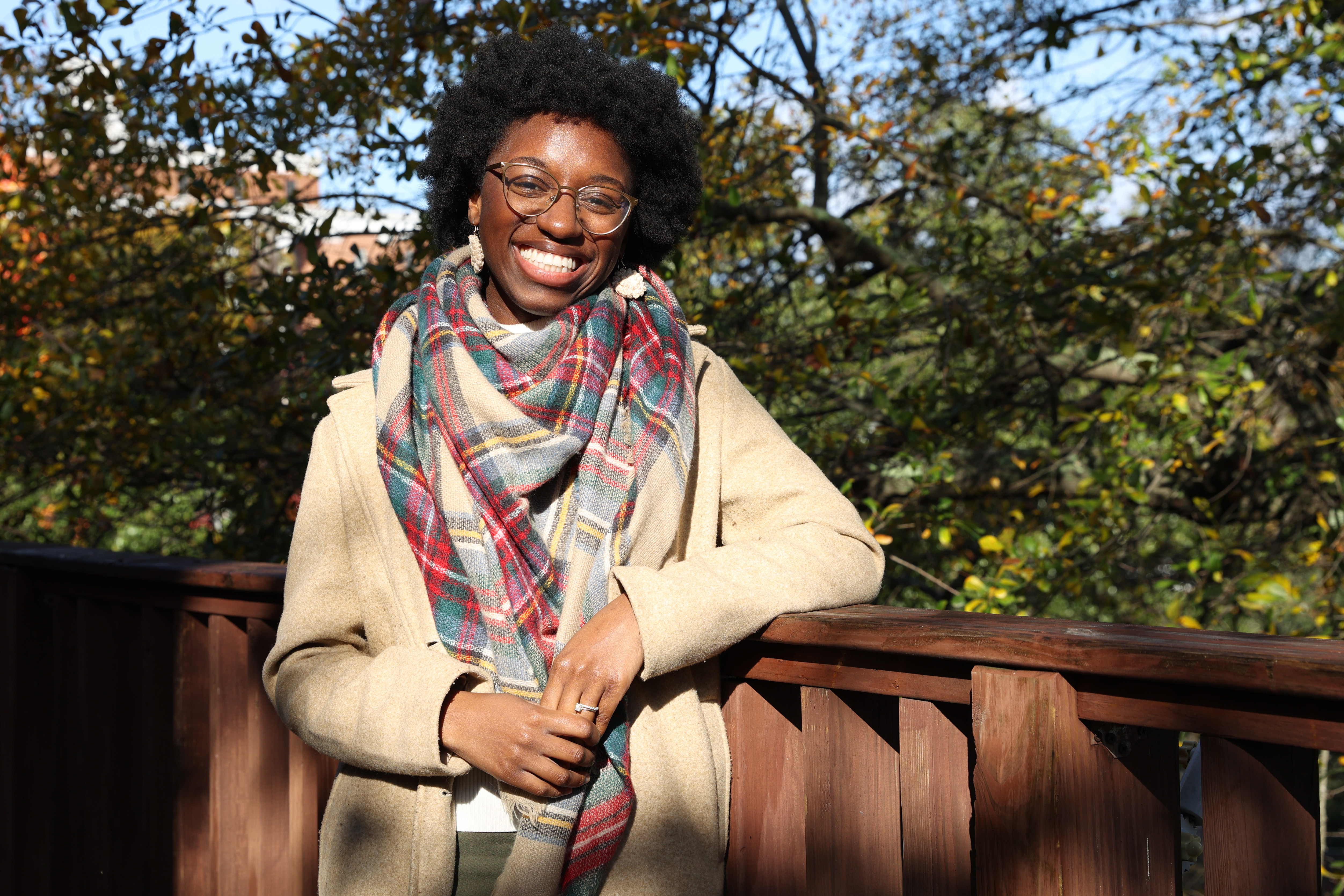Unraveled: Stitching Together Hope After Loss
- Darice Oppong

- Sep 24, 2025
- 4 min read
This blog is part of our Power of Healing series, which explores powerful journeys of healing and recovery and the resilience that fuels them.

In this month’s Power of Healing blog, Darice Oppong shares the story of her son Judah David’s brief but powerful life, and how she found healing through lament, community, and creativity. Her journey is a tender reminder that even in seasons of deep grief, hope can take root—and that none of us have to walk through loss alone.
Trigger warning: This post mentions preterm birth, NICU care, and infant loss.
Hope feels scarce these days. Between negative headlines, hard seasons, and private struggles, it’s easy to wonder if there’s any reason to keep going. Yet I’ve learned that hope still exists—often in the most unlikely places.
In April 2023, my world turned upside down when our beloved firstborn son, Judah David, was born premature. Just four weeks earlier, my husband and I were the picture of parental excitement—nervous but eager to begin our family. At what felt like a normal 20-week OB appointment, my doctor said words I’ll never forget:
“Darice, we need to rush you into emergency surgery. You have cervical incompetence. Your cervix is dangerously short. You’re already dilated and your amniotic sac is bulging. We need to place a rescue cerclage (a stitch to keep your cervix closed until your baby reaches viability at 24 weeks). If you go into labor now, your baby will not survive.”
Those words shattered everything I thought I knew about protection and promise. As a Christian, I had grown up singing songs of God’s keeping power—lyrics that felt absolute, like “You’re never gonna let me down,” or “He loves us, oh how He loves us.” But standing in the hospital corridor, I realized I had confused God’s love with the absence of suffering. This kind of love does not mean pain won’t come, but that we’re never alone when it does.
After an emergency cerclage and four weeks on bed rest, I was rushed back to the hospital at 24 weeks. Our son, Judah David, arrived tiny and fragile at just 1 lb. 9 oz. He lived five days in the NICU fighting for his life, but in the end, he passed away.
Those five days were the most agonizing of my life. I had planned to be at his side constantly; instead, I learned the crushing helplessness of watching through an incubator glass as it seemed my prayers and petitions to God were going unanswered. Everyone prepares you to have a baby, but no one prepares you for what happens if your baby doesn’t make it.
I believe the greatest thief of true hope and comfort, especially in faith communities, is the decision to ignore, diminish, or minimize the realities of pain and suffering we all face. In the aftermath of our son’s death, grief and guilt flooded me. I wondered where God was in the middle of my loss.
In order to survive this season of deep disappointment, I had to take a hard look at my faith through the lens of my reality, instead of pushing it under the rug. As I practiced this, I began to find clarity through the fog—not through one single thing, but through a handful of steady practices.
First, honest lament. I started telling God exactly what I was feeling—anger, confusion, pleading—without pretending it wasn’t real. Prayers that named pain gave me permission to grieve.
Second, community. A few friends brought meals, sat with me at the hospital, and listened without rushing to fix. Their presence mattered more than any polished answer.
Third—and most unexpected—I learned how to crochet.
While on bed rest, I had been looking for activities I could do from bed, and crochet became my quiet lifeline. In a way, it became a metaphor for my experience. Everything around me felt tangled like a ball of yarn, impossible to unravel. But after learning a few simple stitches, I realized that beautiful pieces are created one stitch at a time.
The rhythm of crocheting helped my scattered mind find a gentle focus. Making something with my hands in the middle of grief taught me that healing would be slow and steady, but that beauty was still ahead. This experience inspired the creation of my Etsy shop, Judah David Creations, where I share my story of pregnancy loss and resilience while offering handmade pieces in honor of our son. I later partnered with a local hospital to support other NICU parents in weekly groups that whispered, “You are seen, and you are not alone.” If you’re walking through your own valley, here are a few things that helped me:
Give voice to your grief—speak it aloud, journal, or pray honestly. Don’t be afraid to let it out.
Accept small comforts—short walks, a warm drink, creative work with your hands.
Let others in—practical help and silent presence are both healing.
I still wrestle with hard questions, but now I hold them alongside daily reminders of grace: a check-in call with a friend, a finished crochet project, or quiet time with God. Hope for me is not the absence of pain. It’s the quiet belief that tending to our reality—relationships, creativity, and the desire to be fully seen and fully known—is what helps us keep moving forward. If my story reaches even one person who feels alone today, let it remind you: your grief is valid, your questions are welcome, and you do not have to walk this path alone.
Resources
Caring Essentials | Trauma-Informed Developmental Care & Leadership – Offers trauma-informed education and resources for families and providers navigating perinatal loss, NICU care, and grief.
NICU Parent Network – Connects parents who have experienced the NICU journey with resources, community, and opportunities for advocacy and healing.
Share Pregnancy & Infant Loss Support – Provides compassionate support for those who have experienced miscarriage, stillbirth, or infant loss, including local support groups and online communities.
Author Bio:

Darice Oppong is the founder of Judah David Creations, a crochet studio and instructional platform launched in memory of her son, Judah David. Through her work, she supports NICU parents, encourages resilience, and highlights creativity as a pathway for healing. Darice also serves as Operations Manager for Community Evaluation Solutions. She holds a Master’s in Organizational Leadership and lives in Conyers, Georgia.





Comments